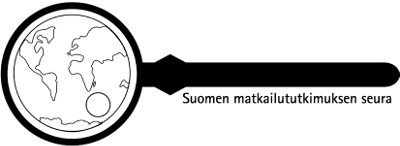Oppimassa käytäntöyhteisöjen rajoilla: matkailututkimuksen yliopisto-opiskelijoiden kokemuksia ammattikorkeakoulun kanssa yhdessä toteutetusta opintojaksosta
Keywords:
tourism education, community of practice, social learning, development of teaching and learning, higher educationAbstract
Learning at the boundaries of communities of practice: university level tourism students’ experiences of a common course with a university of applied sciences The Multidimensional Tourism Institute (MTI) in Rovaniemi seeks to combine three levels of tourism education. In this article, I study what kind of learning a common course of two levels of tourism education produces and what the learning presupposes. My interest is to find tools to develop the course format further by understanding what it is all about. I approach the two levels of tourism education, university and university of applied sciences, as separate communities of practice drawing on Wenger’s theory of social learning. The data consist of course feedback written by the students and course materials produced by the teachers. I focus on the university students’ point of view. The results indicate that learning at the boundaries of the communities of practice did happen, but it was severely handicapped by problems of scheduling and an obligation to use two languages in the teaching. The students seemed to see the competence of the other community of practice as valuable and be ready for much deeper communality than the teachers made possible. I suggest that the students should be included in course planning and the model of combining several levels of education in the same organisation should be adopted in other educational organisations as well.How to Cite
Lüthje M. (2015). Oppimassa käytäntöyhteisöjen rajoilla: matkailututkimuksen yliopisto-opiskelijoiden kokemuksia ammattikorkeakoulun kanssa yhdessä toteutetusta opintojaksosta. Finnish Journal of Tourism Research, 11(2), 9–23. Retrieved from https://journal.fi/matkailututkimus/article/view/90923






